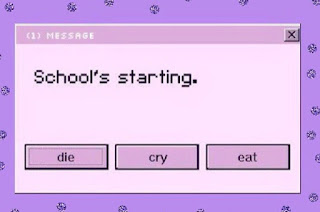Insomnia
Hey everyone!
Welcome back to a fresh new month!
Today's post is a highly highly requested one by you guys so the wait is finally over!
Sleepless nights or sleeping through the day is something that quite a few of us have experienced in our lives. Whether it was because you were stressed or excited-who knows🤷🏻♀️ The reasons are endless.
However, once this starts becoming a daily habit without noticing, these are some signs that might point towards Insomnia.
Starting off,
What exactly is "Insomnia"?
In technical terms,
Insomnia is a sleep disorder in which you have trouble falling and/or staying asleep.
Self-explanatory through most of it but not completely.
Insomnia is a common sleep disorder which could make it difficult to fall asleep, tough to stay asleep, or cause you to wake up too early and not be able to get back to sleep. You may still feel worn-out while you're awake. Insomnia can drain not only your strength and mood but simultaneously your health, work performance and quality of life.
How can you recognize it?
On a holistic level, insomnia is assumed to be as a result of a state of hyperarousal that disrupts falling asleep or staying asleep. Hyperarousal may be both mental and physical, and it could be triggered through various occasions and fitness issues.
Although insomnia is the most common sleep complaint, it isn't always a single sleep disorder. It’s more accurate to consider insomnia as a symptom of every other hassle. The trouble inflicting the insomnia differs from person to person. It may be something as easy as consuming an excessive amount of caffeine at some point of the day or a more complex issue like an underlying medical situation or feeling overloaded with anxiety or responsibilities.





Comments
Post a Comment